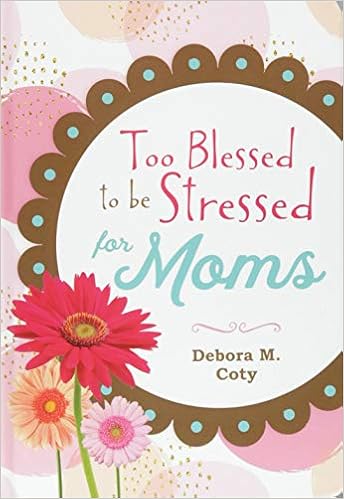by Ronda Wells
“Put on the full armor of God, so that you will be able to stand firm against the schemes of the devil. For our struggle is not against flesh and blood, but against the rulers, against the powers, against the spiritual forces of wickedness in the heavenly places.” Ephesians 6:11-12 NASB
Do you have thin skin? Metaphorical or literal? I have both.
Even though I try to avoid scraping my hand or arm on a shelf or drawer edge, with just the slightest bump I get nasty reddish splotches that seem to take forever to heal. Hmm, those are called senile purpura that come with aging. So many tell-tale bruises, yet I don’t feel old. My husband jokes I need side air bags. After a bad trip & fall last summer, I think he’s right.
Emotionally thin skin affects me as well. Perhaps like me, you had two loving parents who meant well but were highly critical. Maybe you’ve suffered some of these criticisms and perhaps more:
Stand up straight! Don’t slump in your chair, you’ll get a hunchback. Your foot turns in. Walk straighter. If you overeat, you’ll get fat.
If you grow up in that environment, you become sensitized to criticism and develop an overreaction to any form of perceived slight. Blood pressure rises, headaches start. Your jaw cramps with anger. I must “count to ten” to avoid making an immediate snarky reply.
Our current reigning culture has made a false god out of criticizing anything and everything that doesn’t go along with or agree with what they think. Doesn’t matter if it’s considered sinful by the majority of Christians or not. You must go along or be punished! This hypercritical and hypocritical overreaction to someone else’ perceived past sins is destroying lives right and left.
God tells us how to respond to criticism in Proverbs 15:1. “A gentle answer turns away wrath, but a harsh word stirs up anger.” NASB
Not my usual first impulse when I’m attacked. Condemnation is easy to find online. Outright viciousness, especially towards Christians, is prevalent in social media.
Insults from others are slings of the devil that leave invisible scars on our hearts no matter the source or form. Our protection is to use the full armor of God. Armor is heavy, but it’s designed to protect. Fighting in armor takes discipline and years of training. Young squires and knights started out with only a helmet and a dull wooden sword as they learned how to defend themselves in battle.
One Christian counselor recommends performing an actual visualization. Close your eyes and pretend you are sliding on that metal helmet to protect your thoughts, don the breastplate of righteousness to shield your heart, slide on the shoes of salvation to carry Jesus to others, and lift that mighty two-edged sword of the Word (Jesus) – not to cleave someone’s skull—but to patiently lift others up, compliment and instruct with your gentle spirit based in a knowledge of Scripture.
The more we respond with humor, kindness and “turning the other cheek” as Christ suggests, the more arguments we may win or at least end quickly. One troll suggested on social media that I was a fool. My response?
“That may be true, but at least I’m a God-fearing one.” The troll did not respond further.
Always remember our battle isn’t just the one we see. A much greater invisible war is taking place all around us, one that at times we can only glimpse. Jesus and His angels are fighting Satan and all his minions on our behalf! But if you’re bathed in the blood of the Cross, remember that battle has been won for eternity.
Victory has already been achieved.
This article is brought to you by the Advanced Writers and Speakers Association (AWSA).

About the author: Doctor by day, writer by night—Dr. Ronda Wells is an award-winning author who has written inspirational romance and romantic suspense for over twenty-five years. She has helped numerous Christian writers with creating authentic medical scenes for their books. Her column, Novel Malpractice, can be read at Killer Nashville Magazine.
A lifelong Hoosier and preacher’s kid, Ronda is a wife, mother and grandmother who lives in Indiana and loves to travel. She writes to illustrate extraordinary faith among the conflicts of ordinary life.
Read a bonus chapter of her contemporary romance, Harvest of Hope, at www.rondawellsbooks.com.
Join the conversation: How do you deal with personal attacks or attacks on your ministry?






 About the author: Debora Coty lives, loves and laughs in central Florida with her longsuffering husband, Chuck, two grown children and four energetic grandbuddies. Debora is a popular speaker and award-winning author of over 40 inspirational books, including the bestselling Too Blessed to be Stressed series. Join Deb’s fun-loving community of BFFs (Blessed Friends Forever) at
About the author: Debora Coty lives, loves and laughs in central Florida with her longsuffering husband, Chuck, two grown children and four energetic grandbuddies. Debora is a popular speaker and award-winning author of over 40 inspirational books, including the bestselling Too Blessed to be Stressed series. Join Deb’s fun-loving community of BFFs (Blessed Friends Forever) at  churning stress-pool of busyness. In her beloved mom-to-mom, grin-provoking style, Coty offers empathy, laughs, real-life stories, practical parenting survival tips, and fresh biblical insights to help you hear Papa God’s still, small voice through life’s chaos.
churning stress-pool of busyness. In her beloved mom-to-mom, grin-provoking style, Coty offers empathy, laughs, real-life stories, practical parenting survival tips, and fresh biblical insights to help you hear Papa God’s still, small voice through life’s chaos.
 About the author:
About the author:  Free Book Contest! Arise Daily will use a random number generator to pick a winner from today’s comments. To enter our contest for Delores’s book, Be the Miracle, please comment below. By posting in our comments, you are giving us permission to share your name if you win! If you have an outside the US mailing address, your prize could be substituted with an e-book of our choice.
Free Book Contest! Arise Daily will use a random number generator to pick a winner from today’s comments. To enter our contest for Delores’s book, Be the Miracle, please comment below. By posting in our comments, you are giving us permission to share your name if you win! If you have an outside the US mailing address, your prize could be substituted with an e-book of our choice.